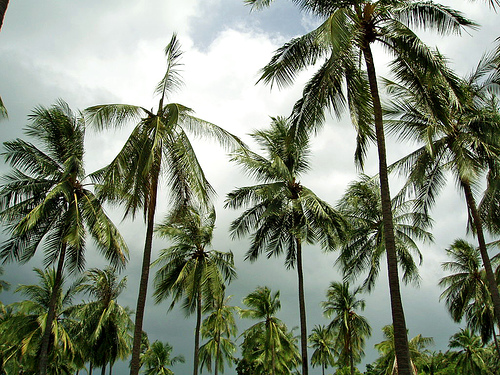The Pacific island nation of Kiribati is moving up in the world — but not in the good way. The small country is looking to relocate to higher ground in order to escape rising seas brought on by climate change.
Some of Kiribati’s 32 coral atolls have already started to disappear beneath the waves. President Anote Tong and his countrymen fear that continued sea level rise will wipe their civilization out entirely unless they relocate to Fiji lickety-split. Tong is reportedly in discussions with Fiji’s military government to buy 5,000 acres of land on the country’s second largest island, Vanua Levu.
“This is the last resort, there’s no way out of this one,” Mr Tong said. “Our people will have to move as the tides have reached our homes and villages.”
Depending on when Kiribati makes its big move, the country could be the world’s first modern climate-induced migration.
Becoming a climate refugee is bad enough, but what’s worse is that Kiribati is one of the greenest nations on the planet. The island boasts only 113,000 people and scant industry, so its carbon footprint is a teensy speck compared to greenhouse gas-spewing powerhouses like China and the U.S. And in 2010, Tong closed a whopping 150,000 square miles of sea to fishing in an effort to give the world’s struggling ocean ecosystems a much-needed break. How’s that for taking one for the (global) team?
Kiribati illustrates a sad-but-true trend happening across the globe: Nations that have little to do with spurring climate change are often some of the hardest hit by its disastrous effects.



